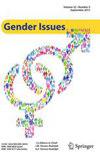撒哈拉以南非洲的全球化与女性经济参与
IF 2.4
Q3 SOCIAL ISSUES
引用次数: 34
摘要
本研究评估了1990-2013年期间撒哈拉以南非洲47个国家的全球化与妇女经济参与之间的关系。EPW是用女性劳动力参与率和就业率来衡量的。经验证据基于面板校正的标准误差和固定效应回归。研究结果表明,总体全球化指数对EPW的积极影响受到其政治成分的抑制,并受到其经济和社会成分的驱动,前者或经济全球化的积极程度更高。在大多数情况下,研究结果对几个结构和制度特征的控制是稳健的。一项通过分解全球化的扩展分析表明,社会全球化的积极影响是由信息流驱动的(与个人接触和文化接近相比),而经济全球化的积极作用是由实际流动驱动的(相对于限制)。讨论了政策影响,重点是如何提高妇女的社会地位,并可能减少她们因男性主导而受害。本文章由计算机程序翻译,如有差异,请以英文原文为准。
Globalisation and Female Economic Participation in Sub-Saharan Africa
This study assesses the relationship between globalisation and the economic participation of women (EPW) in 47 Sub-Saharan African countries for the period 1990–2013. EPW is measured with the female labour force participation and employment rates. The empirical evidence is based on panel-corrected standard errors and fixed effects regressions. The findings show that the positive effect of the overall globalisation index on EPW is dampened by its political component and driven by its economic and social components, with a higher positive magnitude from the former or economic globalisation. For the most part, the findings are robust to the control for several structural and institutional characteristics. An extended analysis by unbundling globalisation shows that the positive incidence of social globalisation is driven by information flow (compared to personal contact and cultural proximity) while the positive effect of economic globalisation is driven by actual flows (relative to restrictions). Policy implications are discussed with some emphasis on how to elevate women’s social status and potentially reduce their victimisation to male dominance.
求助全文
通过发布文献求助,成功后即可免费获取论文全文。
去求助
来源期刊

Gender Issues
SOCIAL ISSUES-
CiteScore
4.30
自引率
0.00%
发文量
12
期刊介绍:
Gender Issues is interdisciplinary and cross-national in scope focusing on gender and gender equity. The journal publishes basic and applied research examining gender relationships as well as the impact of economic, legal, political, and social forces on those relationships across four domains: 1. Understanding gender socialization, personality, and behavior in a gendered context.2. Exploring the wide range of relationships within the gender spectrum, such as acquaintances, friendships, romantic, and professional relationships. 3. Assessing the impact of economic, legal, political, and social changes on gender identity, expression, and gender relations.4. Interpreting the impact of economic, legal, political, and social changes on the aspirations, status and roles of people internationally.
 求助内容:
求助内容: 应助结果提醒方式:
应助结果提醒方式:


